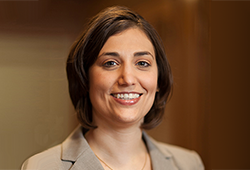Q&A – Estate Planning Tips

Based on her expertise, Diane recently provided some helpful tips on estate planning. Even though it is something many people set aside, she assures us estate planning can be relatively easy. Read on to learn more.
Q. What is estate planning?
A. Estate planning is not just planning for after a person dies; it also includes plans for while you are living. These plans cover what happens in case you become incapacitated and involves choosing a person who knows your financial and medical wishes and is willing and able to step in for you. In addition, it involves plans for after you die and how to implement your wishes for how your assets should be distributed.
Q. Should I have an estate plan?
A. Everyone should have an estate plan. People may not realize it, but estate plans also encompass planning for minor children and who should serve as a guardian in the event of a parent’s death. Families with minor children should have an established estate plan so the guardianship decision is not left up to the state. I see many younger couples who have not yet accumulated a lot of wealth, but they choose to establish a plan to protect what they have and name the guardians for their children.
Q. How often should I review my estate plan?
A. After an estate plan is established, it’s good to revisit it at least every five to ten years. All you have to do at that time is review the plan and make sure everything is correct. There are other times when you should review your estate plan, including the birth of a child, a close family member dying, receiving an inheritance, and a divorce or remarriage. In addition, as wealth accumulates, you can work to incorporate additional tax plans.
Q. What are your top three recommendations for those embarking on an estate plan?
1. Don’t forget to look at all your beneficiary designations, including IRAs, 401Ks and insurance policies. It’s important to revisit these designations to make sure the right people are named.
2. Review your Power of Attorney designations for financial and health care decisions. Many times people pick someone contemporary in age. As time goes on, these people die or may no longer be the right person for the job. Make sure you are comfortable with the people you’ve designated and that they are still willing to act on your behalf.
3. As wealth accumulates, people can take advantage of annual gift exclusions to distribute their assets prior to death as part of their estate plan. This is an important part of estate and tax planning.
Q. What are some pitfalls to be avoided when estate planning?
1. Picking someone older than you or your contemporary to act on your behalf. People forget to review this when they revisit their estate plan. If there are no adult children to serve as your agent, consider siblings, family friends or a bank trust department.
2. Thinking you don’t have enough wealth for an estate plan. If you don’t have an estate plan, your assets will pass by the intestacy laws of the state and this may not be how you actually want your assets to be distributed. Consider all your assets, including your home, savings account, retirement plans, insurance, etc. and then decide who you would like to benefit. This can include charities, family members and friends.
Thank you to Diane for her time and expertise. If you are interested in receiving educational materials to help you begin planning your estate or refining the plan you already have in place, please contact Sally Crino at 563-333-6080 or [email protected]. You can also browse our planned giving website to find articles related to specific topics.



